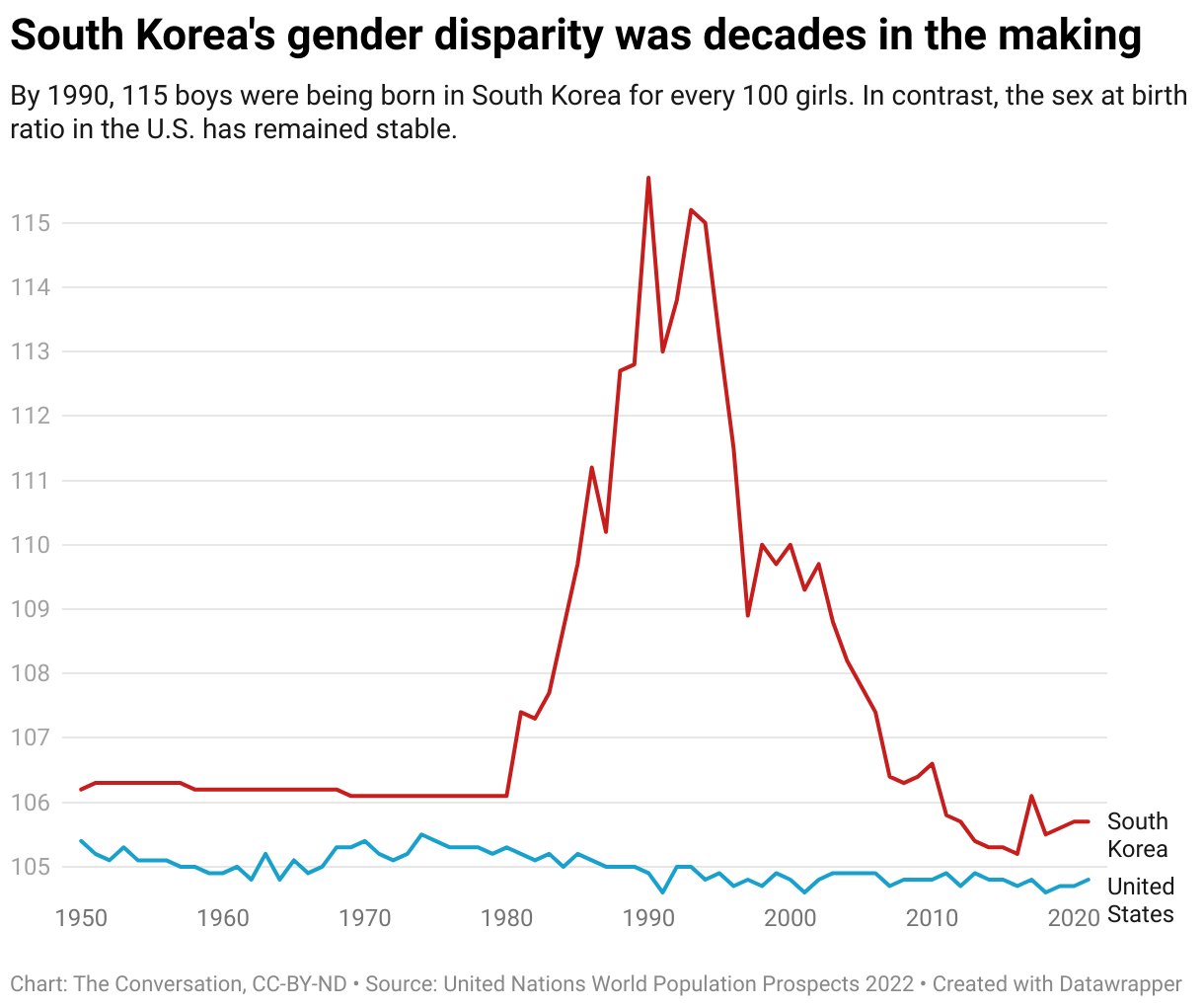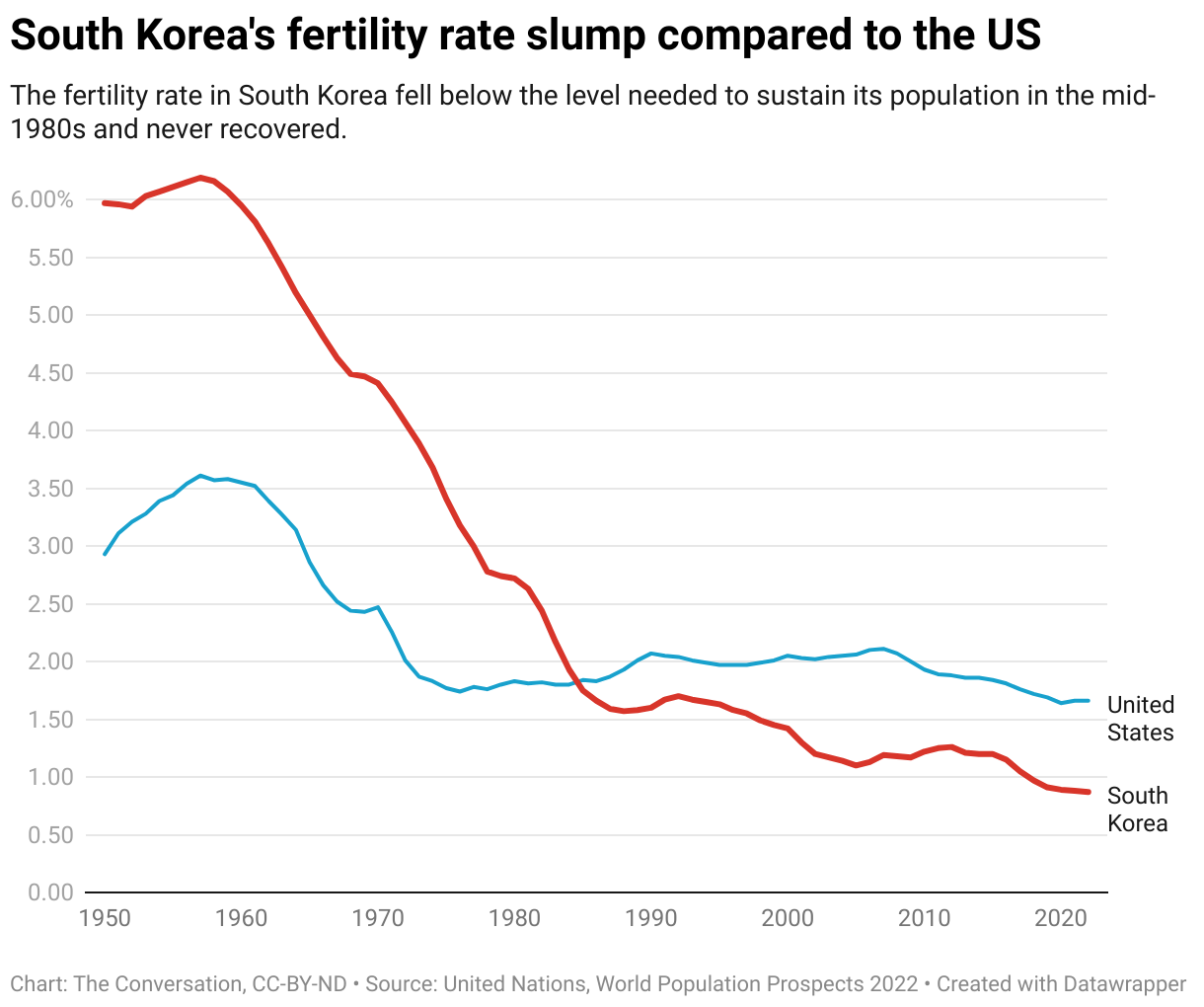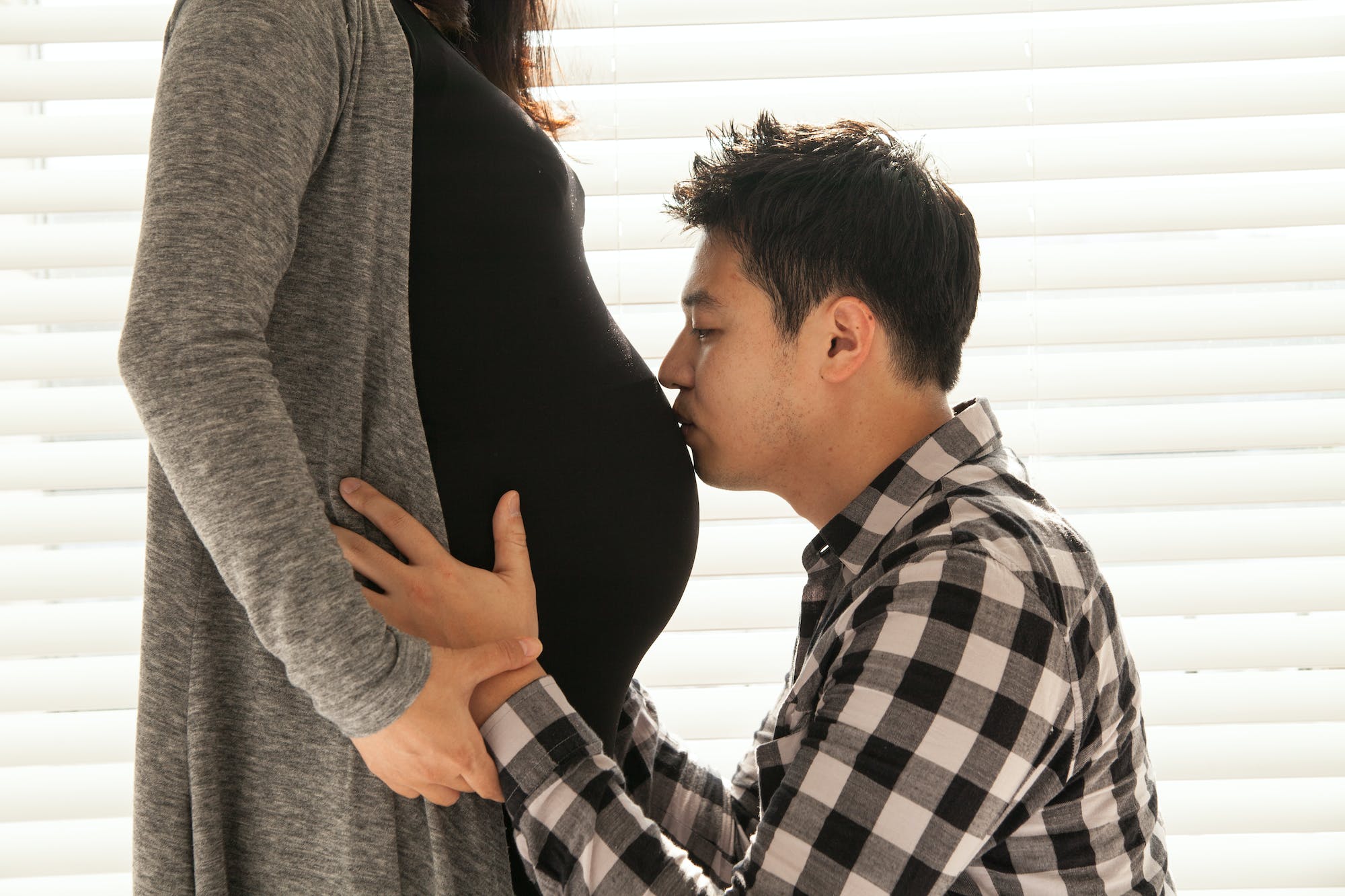South Korea's gender imbalance is bad news for men − outnumbering women, many face bleak marriage prospects

In South Korea, there are nor enough young Korean women for young Korean men to marry.
South Korea’s bachelor time bomb is about to really go off. Following a historic 30-year-long imbalance in the male-to-female sex ratio at birth, young men far outnumber young women in the country. As a result, some 700,000 to 800,000 “extra” South Korean boys born since the mid-1980s may not be able to find South Korean girls to marry.
As a demographer who over the past four decades has conducted extensive research on East Asian populations, I know that this increased number of South Korean boys will have huge impacts throughout South Korean society. Coincidentally, similar trends are playing out in China, Taiwan and India.

The reasons
In most countries, more boys are born than girls – around 105 to 107 boys per 100 girls. That sex ratio at birth (SRB) is a near constant. The gender imbalance is likely an evolutionary adaptation to the biological fact that females live longer than males. At every year of life, men have higher death rates than women. Hence an SRB of between 105 and 107 boys allows for there to be roughly equal numbers of men and women when the groups reach childbearing ages.
The SRB in the United States in 1950 was 105 and was still 105 in 2021; in fact, it has been stable in the U.S. for as long as SRB data has been gathered. In contrast, in South Korea the SRB was at the normal range from 1950 to around 1980, but increased to 110 in 1985 and to 115 in 1990.
After fluctuating a bit at elevated levels through the 1990s and early 2000s, it returned to the biologically normal range by 2010. In 2022, South Korea’s SRB was 105 – well within the normal level. But by then, the seeds for today’s imbalance of marriage-age South Koreans was set.
A preference for sons
There are several reasons why South Korea’s SRB was out of balance for 30 years.
South Korea experienced a rapid fertility decline in a 20- to 30-year period beginning in the 1960s. From six children per woman in 1960, fertility fell to four children in 1972, then to two children in 1984. By 2022, South Korea’s fertility rate had dropped to 0.82 – the lowest fertility rate in the world and far below the rate of 2.1 needed to replace the population.

Yet, South Korea’s long-held cultural preference for sons did not shift as quickly as childbearing declined. Having at least one son was a strong desire influencing fertility preferences in South Korea, especially up through the early years of the 21st century.
And the declining fertility rate posed a problem. When women have many children, the probability that at least one will be a boy is high. With only two children, the probability that neither will be a son is around 25%, and when women have only one child, it is less than 50%.
In order to ensure that families would continue to have boys, many South Koreans turned to readily available techniques to identify the gender of the fetus, such as screening in the early stages of pregnancy. Abortion, which is legal and socially acceptable in South Korea, was then often used to allow families to select the sex of their child.
Sex by the numbers
In South Korea, beginning in around 1980 and lasting up to around 2010 or so, many more extra boys were born than girls. When these extra boys reach adulthood and start looking for South Korean girls to marry, many will be unsuccessful.
The extra boys born in the 1980s and 1990s are now of marriage age, and many will be looking to marry and start a family. Many more will be reaching marriage age in the next two decades.

A deeply rooted cultural preference for sons was still influential in South Korea up through the early years of this century.
I have calculated that owing to the unbalanced SRBs in South Korea between 1980 and 2010, there were born approximately 700,000 to 800,000 extra boys.
Already this is having an effect in a society where over the centuries virtually everyone was expected to marry, and where marriage was nearly universal. Recent research by Statistics Korea showed that in 2023, over 36% of South Koreans between the ages of 19 and 34 intended to get married; this is a decline from over 56% in 2012.
Foreign brides and ‘bachelor ghettos’
The immigration of foreign-born women might help address the imbalance. Research by demographers Guy Abel and Nayoung Heo has shown that financial assistance from the South Korean government is already supporting the immigration to South Korea of Korean women from northeastern China and of foreign women from some less wealthy countries, such as Vietnam, the Philippines and some Eastern European countries.
If the extra bachelors do not marry immigrant brides, they will have no alternative but to develop their own lives and livelihoods. Some might settle in “bachelor ghettos” in Seoul and in South Korea’s other big cities of Busan and Daegu, where commercial sex outlets are more prevalent. Such “ghettos” have already been observed in other Asian cities where men outnumber women, such as Beijing, Shanghai and Guangzhou in China.

While the desire for sons has been relaxed, the social issues, especially regarding the marriage market, remain.
The consequences for South Korean society of the higher than biologically normal SRBs is a problem of the country’s own making. South Korea’s high fertility of the mid-20th century was holding the country back economically. Its program to bring down a fertility rate of nearly six children per woman was hugely successful. But its very success has been problematic.
The speed of South Korea’s fertility transition meant that the evolution to a more modern familial normative structure – that is, with about two children per family and with less preference given to boys – lagged behind. Today, the SRB imbalances appear to be a thing of the past. Women in South Korea have greater access to education and employment, and there is less pressure for men to be sole wage earners. Together with the South Korean government’s efforts to reduce sex selection beginning in the late 1980s, the premium for boys over girls has dropped.
Yet despite the relaxed desire for sons, long-term social issues related to gender imbalance, especially regarding the marriage market, will remain in South Korea for decades to come.
This article is republished from The Conversation, >, a nonprofit, independent news organization bringing you facts and analysis to help you make sense of our complex world.
Dudley L. Poston Jr. does not work for, consult, own shares in or receive funding from any company or organization that would benefit from this article, and has disclosed no relevant affiliations beyond their academic appointment.
